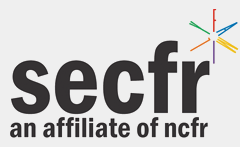Assess Intersectionality & Cultural Competence: Attitude toward Elderly Immigrants
Proposal Focus
Research
Presentation Type
Presentation
Abstract
Considering the geographical setting of the Southern region of the U.S., which is mostly divided into two races, Black and White, this study is to examine human science-related major undergraduates’ cultural competence and attitude toward the intersectionality group, elderly immigrants. The data, a total of 444 human science related major undergraduates in Mississippi, were collected. Through the principal factor analysis, attitudes toward elderly immigrants were divided into three factors: discrimination, avoidance, and tolerance, and cultural competence was into attitude, awareness, and sensitivity factors. The further related data analysis is to be completed by spring 2020. Through the study, it is expected to increase awareness of the need for culturally competent programs to educate the students on diversity and help to prepare undergraduate students to meet societal demands related to the intersectional minority population in the future.
Keywords
cultural competence, intersectionality, attitude toward elderly immigrants
Location
Yorkshire
Start Date
3-4-2020 10:50 AM
End Date
3-4-2020 11:40 AM
Assess Intersectionality & Cultural Competence: Attitude toward Elderly Immigrants
Yorkshire
Considering the geographical setting of the Southern region of the U.S., which is mostly divided into two races, Black and White, this study is to examine human science-related major undergraduates’ cultural competence and attitude toward the intersectionality group, elderly immigrants. The data, a total of 444 human science related major undergraduates in Mississippi, were collected. Through the principal factor analysis, attitudes toward elderly immigrants were divided into three factors: discrimination, avoidance, and tolerance, and cultural competence was into attitude, awareness, and sensitivity factors. The further related data analysis is to be completed by spring 2020. Through the study, it is expected to increase awareness of the need for culturally competent programs to educate the students on diversity and help to prepare undergraduate students to meet societal demands related to the intersectional minority population in the future.
![Southeastern Council on Family Relations Conference [2018-2020]](/assets/md5images/a0d3661d5139dc9b769a57be6f085156.png)

